Der größte Geldtransport der Geschichte - Wie die D-Mark in den Osten kam (2020)
Género : Documental
Tiempo de ejecución : 0M
Director : Martina Schuster, Johannes Thürmer
Sinopsis
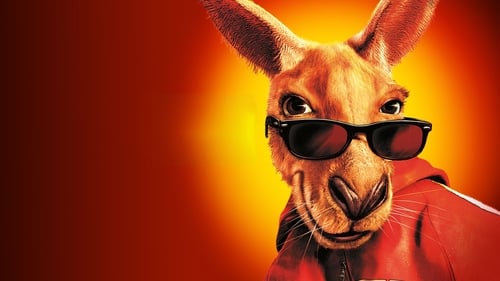
Charlie Carbone (Jerry O'Connell) y Louis Booker (Anthony Anderson) son dos buenos amigos incapaces de progresar en la vida. El primero es peluquero, mientras que el segundo trata de triunfar en el mundo de la música. Ninguno de los dos podrá seguir adelante con sus planes hasta que no cumplan un pequeño encargo para la mafia: deben entregar 50.000 dólares a un mafioso de Australia. Louis guarda el dinero en su cazadora roja, donde cree que estará seguro. Ya en Australia, su coche choca contra un canguro, y Charlie y Louis le hacen fotos con la cazadora roja. Entonces, el animal sale corriendo con ella.... y con el dinero.

Hank, su hermano y un amigo encuentran 4.500.000 dólares en una avioneta que ha sufrido un accidente. Enfrentados al dilema de quedarse o no con el dinero, adoptan una solución intermedia: como Hank es el único que tiene un empleo estable y, por tanto, es el menos sospechoso, guardará el dinero durante una temporada. Si, al final, nadie lo reclama, se lo repartirán a partes iguales.
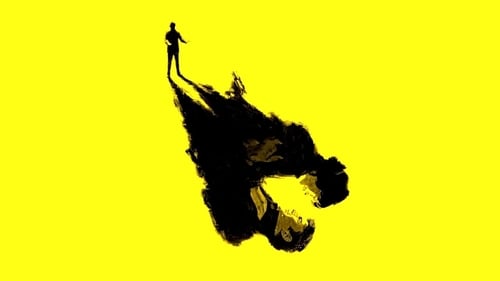
Michael Courtland (Cliff Robertson), un importante hombre de negocios de Nueva Orleáns, pierde a su mujer Elizabeth (Genevieve Bujoid) y a su hija de nueve años en el fatal desenlace de un trágico secuestro. Muchos años después, durante un viaje por Italia con un socio suyo (John Lithgow), queda fascinado al conocer a Sandra, una joven que es el vivo retrato de su esposa.
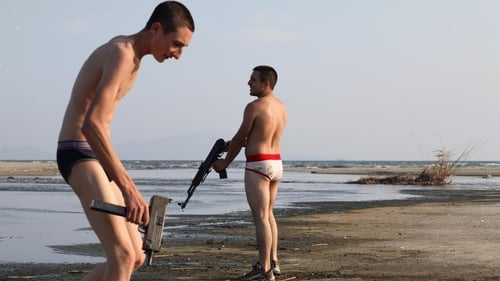
Basado en el libro de Roberto Saviano, lanza una mirada al interior de las familias del crimen de la Italia de hoy en día: la Camorra en Nápoles y Caserta. Poder, dinero y sangre: estos son los "valores" a los que se tienen que enfrentar cada día los residentes de la provincia de Nápoles y Caserta. Casi nunca tienen opción, y se ven obligados a obedecer las reglas de la Camorra. Sólo un pocos afortunados pueden pensar en llevar una vida normal.
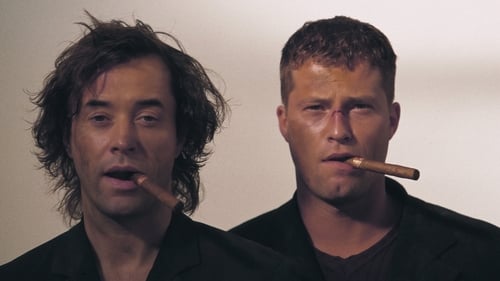
Dos jóvenes enfermos terminales dedicen vivir con intensidad y alocamiento sus últimos días, saltándose todas las normas. La historia narrada combina de modo singular drama y comedia. Y presenta situaciones muy disparadas, que provocan la risa. Aunque los anhelos más íntimos de los protagonistas se revelan limitados -ver el mar, que uno de ellos no conoce-, el alemán Thomas Jahn logra impregnarlos de entidad dramática. Esta atrevida película ganó el premio a la mejor película en el festival de Sitges de 1997.
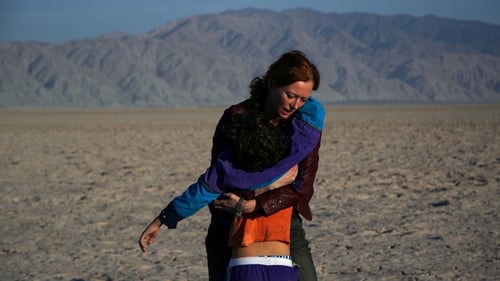
Inspirada en "Gloria" de John Cassavetes, la película se centra en Julia (Tilda Swinton), una mujer de 40 años, alcohólica, manipuladora, desconfiada y mentirosa. Entre vodkas, Julia sobrevive con trabajos con los que gana una miseria. A pesar de su soledad, mantiene una buena relación con Mitch, un antiguo novio que procura ayudarla. Pero Julia ignora sus esfuerzos. Presionada por la desesperación y la necesidad económica, se ve forzada a cometer un crimen (el secuestro de un niño), cuyo inesperado desenlace la obligará a huir. (FILMAFFINITY)

In 1989, thirteen GDR scientists and technicians set off from East Berlin to the Georg Forster research station in the Antarctic. During their expedition the Berlin Wall fell on November 9th. Cut off from the images that go around the world, the men can only experience the historical events passively. When they returned in the spring of 1991, their homeland was a foreign country. The documentary reconstructs the thoughts and feelings of the East German researchers on the basis of eyewitness accounts, diary excerpts, letters, film material, grandiose landscape shots from the location of the action and unique photos to make the consequences of the events tens of thousands of kilometers away on the small GDR expedition in the middle of the eternal ice tangible.
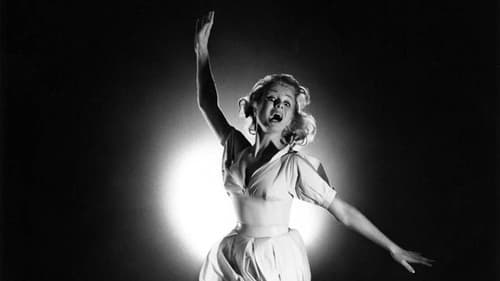
Un grupo de terroristas ha anunciado la colocación de una bomba en un avión de pasajeros. Para asegurarse la entrega del dinero que solicitan, los delincuentes secuestran a la familia del ingeniero que diseñó el artefacto. Hay que destacar el excelente reparto con el que contó la película y el esquema expertamente narrado partiendo de una base más bien convencional.

In reunified Berlin, a city guide from the Eastern part of the city offers tours for West Berliners and grapples with his pre and post "Wende" identity.

Volker Koepp revisits Zehdenick and Grüneberg, East Germany. People are struggling with the new political and economical conditions shortly before the German Reunification.

In late 1990 times are changing in Zehdenick, Brandenburg: Russian troops are leaving, the German Reunification brings euphoria and new hope, but unemployment rises steadily.

The vegetables come from the garden behind the house, the fish comes out of a can, and money for bread is earned at the factory. It’s because of this money that they came here. Women from Turkey stand side-by-side with women form Mecklenburg at the conveyor belt of a fish-processing factory in Lübeck. Their hands are stained brown, the pungent smell of fish clings to them, and their arms and backs ache. If these jobs were done by men, machines would have been invented long ago to replace them. But female labour is cheap and the women do not complain. They have learned to work – and therein lies the source of their pride. (Source: https://www.artechock.de/film/text/filminfo/g/ge/gefubr.htm)

Journalist Daniela Dahn interviews the East-German author Christa Wolf during the German reunification: reflections on history, changing politics, life and work.
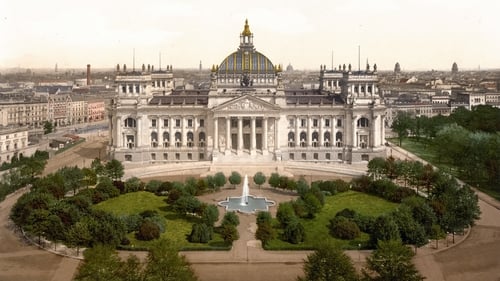
Docudrama telling the story of a building with a breath taking career that began in the empire, flourished in the Weimar Republic, perished in the Nazi dictatorship, and was rebuilt after its partial destruction.

Outside Time is the second feature film of Andreas Kleinert, a German director who grew up in the GDR and who started making films at the time of the fall of the Wall. The film is set in a small town somewhere in Brandenburg, a place which is rapidly falling "outside time"; since it cannot keep pace with the changes brought about by unification and the transformation of the former GDR. The Russian troops stationed there have withdrawn and their barracks have turned into rat-infested ruins; the intercity trains do not stop there any more and even the regional railway link to Berlin is going to be suspended. Most young people are leaving. When Sophie introduces her lover to her mother and her brother, Sergej becomes embroiled in the incestuous tensions underlying the relationship between Sophie, her brother, Georg, and her mother. The arrival of the Russian implodes the claustrophobic sham existence that held this dysfunctional family together.

A tragi-comedy telling the story of the adventures of Robin, Anna, Jost and Leo - the meds - who want to be anything but healthy, happy and mediocre. They all live in a large city in West-Germany and are "Westies" to the core. Precocious, disillusioned, morally eroded, politically bored and sexually sated. Always on the run from the next compromise, they are big kids caught up in their mid-twenties crisis. One day in the midst of all this depression the suspicion arises that one of them is in fact a closet "Eastie", a liar and betrayer, an undercover agent, a neo-Nazi or at least a Stalinist...















